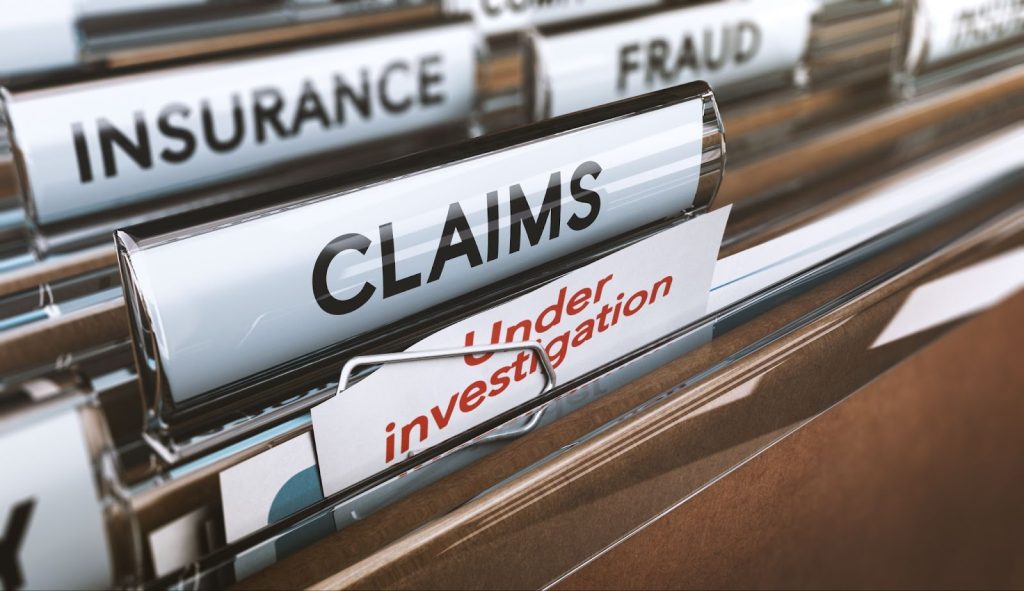Maximizing Claim Settlements: Here’s Everything You Need to Know
Dealing with property damage is overwhelming, but understanding the claims settlement process will turn a stressful situation into a manageable one. Whether it’s damage from a natural disaster or an unexpected incident, knowing how to navigate the intricacies of filing a claim and securing a fair settlement is crucial.
This guide is here to shed light on the steps you need to take to ensure your property damage claim is handled smoothly and efficiently, helping you restore normalcy to your life as swiftly as possible.
From understanding how claim settlements work to knowing when to hire a public adjuster, this is your complete guide to maximizing claim settlements.
Understanding the basics of claim settlements
When it comes to dealing with insurance claims, it is important to understand the basics of claim settlements.
To begin, let’s define what a claim settlement is. It refers to the process of reaching an agreement between an insurance company and the claimant to resolve a claim. This agreement specifies the amount of money that will be paid out to the claimant to cover the damages or losses incurred.
Now that we have a basic understanding of claim settlements, let’s explore some key points to consider when seeking to maximize your claim settlement:
Document everything
It is imperative to document all the details related to your claim, including any evidence or proof that supports your case. This can include photographs of the property damage scene, medical reports, witness statements, repair invoices, and any other relevant documents.
The more thorough your documentation, the stronger your case will be when negotiating your claim settlement.
Understand your policy
Make sure you thoroughly understand the terms and conditions of your insurance policy for property damage. Familiarize yourself with the coverage limits, deductibles, and exclusions that may affect your claim settlement. By having a clear idea of what your policy covers, you can effectively negotiate for the maximum compensation available to you.
Be aware of time limits
Most insurance policies have strict time limits for submitting claims. Failing to file your claim within the specified time frame could result in a denial or reduced settlement. Ensure that you are aware of these time limits and act promptly to prevent any potential complications.

Be prepared to negotiate
Negotiation is a key aspect of maximizing your claim settlement. Do not accept the initial offer presented by the insurance company without carefully reviewing and considering all the facts.
If you feel that the offer is inadequate, gather evidence and present a strong case to negotiate for a higher settlement. Remember, always remain calm and professional during the negotiation process.
Keep detailed records
Throughout the claim settlement process, it is important to keep detailed records of all communication with the insurance company. Document the dates, times, and content of phone calls, emails, or letters exchanged. This will help you to track the progress of your claim and serve as evidence in case of any disputes that may arise.
Be patient
Claim settlements are sometimes complex and time-consuming. It is essential to remain patient throughout the process. Remember that insurance companies may try to delay settlement proceedings in order to pressure you into accepting a lower offer.
By staying patient and persistent, you can ensure that your claim is handled properly and that you receive the compensation you deserve.

The role of insurance companies
Insurance companies play a vital role by providing financial protection in case of unexpected events or accidents. One critical aspect of their role is the efficient and fair settlement of claims, ensuring policyholders receive the financial assistance they deserve.
Initially, when an individual purchases an insurance policy, they enter into a contract with the insurance company. This legally binding agreement outlines the terms and conditions of the policy, including the coverage limits, deductibles, and the premiums to be paid.
As part of this contract, the insurer promises to provide financial compensation for covered damages or losses. This agreement enables policyholders to have peace of mind, knowing that in times of need, their insurance company will be there to support them.
When an unfortunate event occurs, such as an accident or stolen property, the policyholder must file a claim with their insurance company to request compensation for the damages suffered. Here, the insurance company takes on the role of a trusted partner, facilitating the claims process and evaluating the validity of the claim.
How claims adjusters work
Insurance companies employ a team of claims adjusters who are responsible for investigating and settling claims.
These professionals are trained to be fair and impartial, reviewing the details of the accident or incident, examining any available evidence, and assessing the extent of the damages or losses. Their task is to determine the coverage parameters and calculate the amount of compensation that the policyholder is entitled to.
Databases and advanced technology systems
To ensure that claims are processed accurately and efficiently, insurance companies maintain extensive databases and advanced technology systems. These tools enable them to streamline the claims process and expedite settlements.
By employing state-of-the-art technology, insurance companies can assess the value of damaged or stolen items, conduct thorough investigations, and mitigate fraudulent claims effectively.
Transparency is a crucial aspect of maximizing claim settlements. Insurance companies make efforts to share relevant information and educate policyholders about the entire claims process. They strive to maintain open lines of communication, promptly addressing any inquiries or concerns that policyholders may have.
Regular updates are provided to policyholders, informing them of the progress made in handling their claims. This transparency strengthens the bond of trust between insurance companies and policyholders, resulting in smoother claim settlements.
Another critical factor that contributes to maximizing claim settlements is the collaboration between the insurance company’s claims adjusters and the policyholders.
When policyholders report claims promptly, provide accurate information, and cooperate in the investigation process, insurers are better equipped to assess the extent of the damages and expedite claim settlements.
This open collaboration not only benefits policyholders by expediting their claims but also enables insurers to minimize potential fraudulent activities, ensuring that the financial burden is distributed fairly among policyholders.
Insurance companies also follow specific guidelines and regulations set forth by governing bodies. These regulations aim to protect the consumers’ interests by ensuring that insurance companies adhere to industry standards and conduct themselves ethically. Compliance with these guidelines helps to maintain fairness and consistency in the claims settlement process.
While insurance companies strive to maximize claim settlements, it is important to understand that the ultimate goal is to provide adequate and fair compensation to policyholders rather than aiming for excessive payouts.
Insurance companies assess claims based on contract terms and applicable laws, aiming to strike a balance between meeting policyholders’ needs and maintaining stable insurance markets.

Common challenges in claim settlements
Understanding policy coverage
One of the initial challenges individuals encounter while filing a claim is understanding their policy coverage. Each insurance policy has its own set of terms, conditions, and exclusions, which can be confusing.
To overcome this challenge, it is crucial to thoroughly read and comprehend your insurance policy before filing a claim. Take note of any limitations or specific requirements necessary for the claim settlement.
Additionally, reaching out to your insurance provider for clarification will help mitigate any confusion and ensure you have a comprehensive understanding of your coverage.
Documenting losses
Documenting losses with accuracy and detail is essential during the claim settlement process. However, many individuals face challenges in ensuring they provide sufficient evidence to support their claims.
To maximize your settlement, gather all relevant documents related to the incident, such as photographs, receipts, invoices, and any other supporting evidence. Providing a detailed account of the event or damage will strengthen your claim and increase the likelihood of a favorable settlement.
Communicating with insurance adjusters
Effective communication with insurance adjusters is pivotal in the claim settlement process. Unfortunately, individuals often encounter challenges in this regard due to a lack of confidence or understanding.
It is imperative to maintain a professional, proactive approach when communicating with insurance adjusters. Clearly explain the incident, the extent of the damage or loss, and provide all necessary supporting documents.
Additionally, be prepared to ask questions and seek clarification to ensure you understand the claim settlement procedures. Polite and respectful communication will help establish a positive rapport, increasing the chances of a satisfactory settlement.
Assessing loss value
Another common challenge is accurately assessing the value of the loss. Determining the appropriate compensation is complex, especially when it comes to depreciated value, replacement costs, or total loss scenarios.
To overcome this challenge, consider seeking professional assistance or independent evaluations. Experienced professionals can guide you through the process and help ensure you receive fair and just compensation.
Negotiating settlement offers
Reaching a settlement agreement that satisfies both parties is often a challenge during the claim settlement process. Insurance companies aim to minimize their costs, while claimants seek appropriate compensation.
When negotiating a settlement, it is vital to stay informed about the extent of your coverage, ensuring you are aware of your rights. Consider consulting with legal professionals or public adjusters who have expertise in negotiating claim settlements. They will advocate for your best interests and assist in maximizing your settlement offer.
Time management
Managing the timeline of a claim settlement is another challenge individuals face. Failure to adhere to deadlines or providing incomplete information can result in delays or reduced settlement amounts.
To avoid such complications, familiarize yourself with the claim settlement timeline outlined by your insurance provider. Stay organized, maintain clear records of all communications, and promptly respond to any requests to ensure a smooth and timely resolution.

Preparing to file a claim
Filing a claim allows you to seek reimbursement or compensation for the damages or losses you have experienced. However, the process of filing a claim can be complex and time-consuming. To maximize your settlement and ensure a smoother process, it is important to be well-prepared.
Step 1: Document the incident
The first step in preparing to file a claim is to thoroughly document the incident and its aftermath. This documentation will serve as evidence to support your claim and usually significantly impacts the settlement amount.
Step 2: Notify the appropriate parties
After you have documented the incident and reviewed your insurance policy, the next crucial step is to notify the appropriate parties. Depending on the incident, these parties may include law enforcement, your insurance company, or property owners. Consider the following:
1. Law enforcement: If the incident involves a motor vehicle accident, contact the appropriate law enforcement agency to file an accident report. The report will serve as an official document supporting your claim.
2. Insurance company: Notify your insurance company as soon as possible after the incident occurs. Provide them with all the relevant details and information. Timely notification is essential to avoid any potential complications or delays in the claims process.
3. Property owners and authorities: If the incident occurred on someone else’s property, inform the property owner or manager immediately.
Filing the claim: Best practices
To further maximize your claim settlement, consider obtaining estimates from multiple reputable contractors or professionals for repairs or replacement costs. This will help you understand the extent of the damage and ensure you receive a fair settlement amount.
Keep in mind that your insurance company may also send their adjuster to assess the damage, so be prepared to provide them access to your property and any necessary documentation.
Throughout the claims process, it’s important to remain patient and persistent. Insurance claims can sometimes take time to resolve, so don’t get discouraged if there are delays or if your initial claim is denied. Follow up with your insurance company regularly to ensure that your claim is progressing, and provide any additional information or documentation they may request.
If you encounter any difficulties or feel that your claim is being unfairly handled, don’t hesitate to seek professional assistance. There are public adjusters who specialize in handling insurance claims and can provide guidance and support throughout the process. They will help ensure that your rights are protected and your claim is fairly evaluated.
Negotiating your settlement
When it comes to insurance claims, negotiating your settlement is a critical step in maximizing the amount of money you receive.
Determine the actual value of your claim
To negotiate effectively, you need to know the value of your claim. Research similar cases, consult experts if needed, and calculate the true cost of your damages. This could include medical expenses, property repairs, lost wages, pain, and suffering, among other factors.
By obtaining an accurate estimate of your claim’s value, you have a solid foundation for negotiation discussions.
Stay calm and present your case objectively
During negotiations, it’s essential to keep your emotions in check and approach the process objectively. Avoid becoming confrontational or aggressive, as it can hinder productive discussions.
Present your case in a calm and logical manner, focusing on the facts and evidence you have gathered. By maintaining a composed demeanor, you increase your chances of reaching a mutually beneficial settlement.
Prepare a strong counteroffer
When negotiating, the initial settlement offer from the insurance company may not fully reflect the value of your claim. Be prepared to make a strong counteroffer based on your research and estimation of the damages.
Present your counteroffer in a clear and concise manner, highlighting the specific reasons why you believe it is justified. Remember to remain polite and professional throughout the negotiation process.
Don’t settle for less than you deserve
Lastly, don’t settle for less than you believe you deserve. Be persistent and don’t be afraid to advocate for yourself. Insurance companies may initially offer low settlements to protect their bottom line, but it’s important to stand your ground if you genuinely believe you are entitled to more compensation.
Remember, you have the right to a fair settlement, and by following these negotiation tips, you can increase your chances of achieving it.

When to hire a public adjuster
When it comes to filing an insurance claim, things can quickly get overwhelming. From assessing damages to negotiating with the insurance company, the process can be complex and time-consuming.
This is where a public adjuster will come to your rescue, ensuring that you receive the maximum settlement possible. But when exactly should you hire a public adjuster? Let’s dive into the details.
Complex claims
If your insurance claim involves complex issues, it’s wise to seek the expertise of a public adjuster. Complex claims may include extensive damage to your property, multiple policies, or disputes between you and the insurance company.
In such situations, a public adjuster can navigate the intricacies of the claim process, ensuring you receive what you rightfully deserve.
Insufficient settlement offers
Have you received an offer from your insurance company that seems too low, leaving you under-compensated for your losses? If so, hiring a public adjuster can make all the difference.
A competent public adjuster will evaluate your damages accurately, making sure that you are not shortchanged by the insurance company. They will negotiate on your behalf and fight for a fair and just settlement.
Time constraints
The claim process is extremely time-consuming, requiring extensive documentation, communication, and negotiation. If you are already burdened with other responsibilities or do not have the time to dedicate to your claim, hiring a public adjuster can prove invaluable.
By taking over the tasks involved in the claim process, a public adjuster will save you time, stress, and energy, ultimately maximizing your settlement.
Lack of expertise
Understanding insurance policies and claim procedures can be challenging for the average policyholder. If you find yourself struggling to comprehend the intricacies of your policy or the language used in it, a public adjuster can be your guiding light.
With their expert knowledge and understanding of insurance policies, they will ensure that you fully comprehend your rights, coverage, and the steps involved in the claim process.
Disputes or denials
In unfortunate cases where your insurance company denies your claim or disputes the extent of your damages, hiring a public adjuster is crucial. These professionals are skilled in building solid cases, presenting evidence, and advocating for your rights.
A public adjuster will analyze your policy, assess the damages, and gather the necessary documentation and evidence to support your claim, thus increasing the chances of a favorable settlement.
Emotional considerations
Filing an insurance claim, particularly after a significant loss or disaster, can be an emotionally challenging time. It’s understandable that you may not be in the best state of mind to navigate the claim process.
In such situations, a public adjuster can take the burden off your shoulders and handle the entire process on your behalf. This allows you to focus on rebuilding and healing, knowing that an experienced professional is fighting for your best interests.
Hudson Douglas Public Adjusters
Feeling overwhelmed by the thought of tackling your property damage claim? You’re not alone. The road to a fair and maximized claim settlement is fraught with intricate details and negotiations that can leave anyone feeling out of their depth.
But here’s the good news: You don’t have to face this challenge by yourself. Hudson Douglas Public Adjusters is your trusted partner, ready to stand by your side and guide you through every step of the process.
Our team of seasoned professionals specializes in turning the tide in your favor, ensuring you receive the compensation you rightfully deserve. With a deep understanding of the insurance landscape and a relentless commitment to our clients, we’re here to lift the burden off your shoulders.
Don’t let the stress of property damage claims weigh you down. Call Hudson Douglas Public Adjusters today, and take the first step towards a seamless, maximized settlement. Together, we can rebuild your property and your peace of mind.


